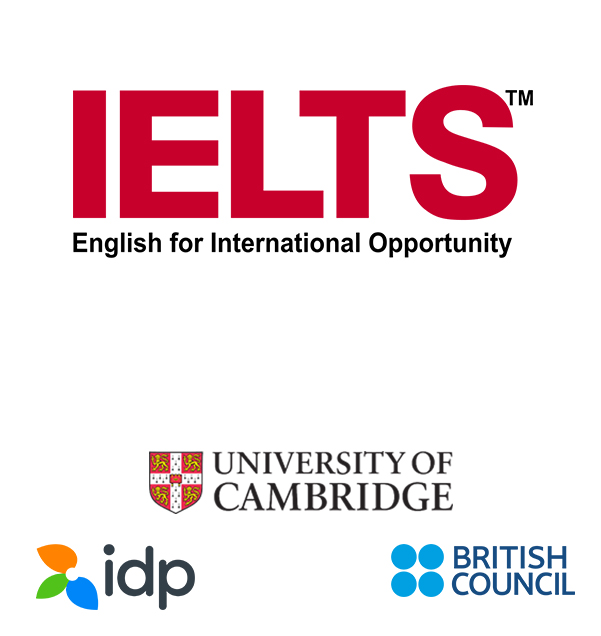IELTS CLASSES
IELTS
The International English Language Testing System,or IELTS, is an international standardized test of English language proficiency for non-native English language speakers. It is jointly managed by the British Council, IDP: IELTS Australia and Cambridge English Language Assessment, and was established in 1989. IELTS is one of the major English-language tests in the world, others being the TOEFL, TOEIC, PTE and OPI/OPI. IELTS is accepted by most Australian, British, Canadian and New Zealand academic institutions, by over 3,000 academic institutions in the United States, and by various professional organisations across the world.
IELTS is the only Secure English Language Test approved by UK Visas and Immigration (UKVI) for visa customers applying both outside and inside the UK. It also meets requirement for immigration to Australia, where TOEFL and Pearson Test of English Academic are also accepted,and New Zealand. In Canada, IELTS, TEF, or CELPIP are accepted by the immigration authority.
No minimum score is required to pass the test. An IELTS result or Test Report Form is issued to all test takers with a score from “band 1” (“non-user”) to “band 9” (“expert user”) and each institution sets a different threshold. There is also a “band 0” score for those who did not attempt the test. Institutions are advised not to consider a report older than two years to be valid, unless the user proves that they have worked to maintain their level.
In 2017, over 3 million tests were taken in more than 140 countries, up from 2 million tests in 2012, 1.7 million tests in 2011 and 1.4 million tests in 2009. In 2007, IELTS administered more than one million tests in a single 12-month period for the first time ever, making it the world’s most popular English language test for higher education and immigration
Book Free Demo Class





